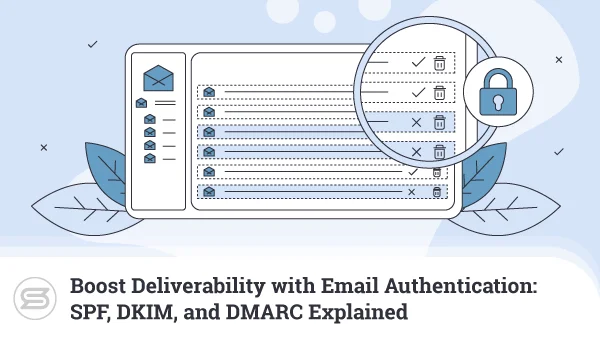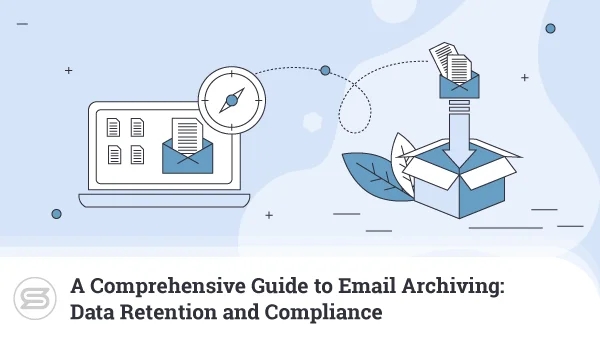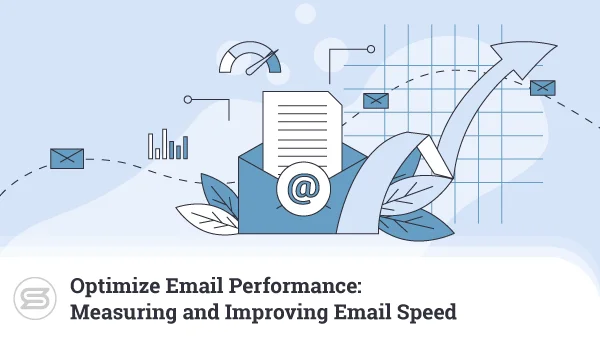Where Are Emails Stored?
Have you ever wondered where your emails go after you hit the send button? It’s a common question that most people don’t know the answer to. Emails are stored on servers and can be accessed from different devices using email clients. In this blog, we unveil the mystery of email storage and answer all your questions.
We will explore how different email providers store their emails and how to locate them on various devices. We will also discuss different types of mail servers, including POP and IMAP, and how they affect email storage.Lastly, we will share tips for locating lost and recovering deleted emails. So sit tight as we take you through this enlightening journey of email storage!
Understanding Email Storage
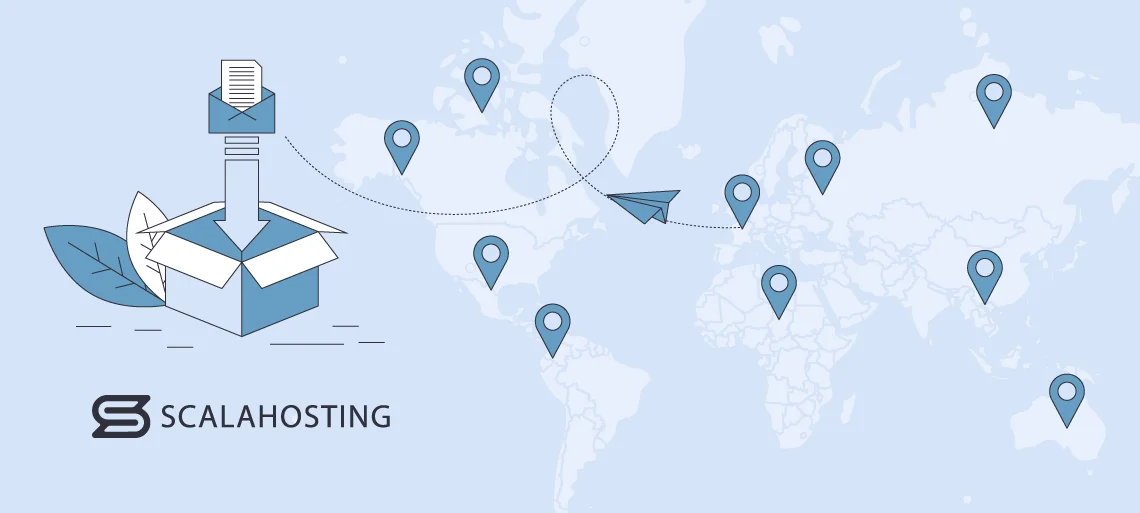
Maintaining a reliable email storage system is crucial for every individual and organization. Email servers store emails; they can be physically located on hardware or in cloud storage.
The amount of storage available depends on the provider and the chosen plan. Although users can also store archived emails locally on their devices or computers, access to email storage is typically only possible through email clients or webmail interfaces offered by the service provider.
Locating Stored Emails in Gmail
Gmail, one of the most popular email service providers, offers various tools to help users locate their stored emails quickly. Users can access their stored emails through the Gmail website or mobile app, allowing easy accessibility from anywhere with an internet connection.
Additionally, Gmail’s filters and labels allow users to categorize their emails, making locating specific messages simple in the future. With free storage up to a certain limit and paid plans for additional space, Gmail provides ample storage options for users who need more space than the standard offering.
Finding Email Storage in Outlook
The email storage for Outlook can vary based on user preferences and the service provider. Local storage is one option, but it can threaten data loss if not backed up properly.
Cloud-based storage provides more flexibility and accessibility across multiple devices. It’s important to back up emails regularly to avoid losing critical information. By taking advantage of cloud-based storage options, users can ensure their emails are secure and easily accessible.
Where Email Files are Stored in Yahoo
Yahoo’s email files are stored on servers distributed across data centers worldwide. These servers utilize redundant storage systems to protect email files from data loss. Users can access their email files using Yahoo’s webmail interface or an email client like Thunderbird or Outlook.
Email Storage on Cloud Servers
Cloud servers have become a popular option for email storage due to their affordability, accessibility, and security. With options like Google Drive and Dropbox, users can store their emails in the cloud and access them from anywhere with an internet connection.
Cloud hosting servers also offer automatic backup and synchronization, ensuring all data is up-to-date and secure. Additionally, cloud storage often includes features like spam filters and virus protection to keep your inbox safe.
Overall, cloud-based email storage provides a convenient and reliable solution for users to streamline their email management.
Locating Emails on Your iPhone
Locating emails on your iPhone can be daunting, especially with multiple mailboxes and folders. Fortunately, the Mail app offers several options to help you find what you’re looking for quickly.
You can navigate through your inbox by swiping or tapping on different email folders, or you can use the search function to locate specific keywords or phrases. With a few simple taps, you can filter your emails by date, sender, or attachment type, making it easier to sort through your messages.
Finding Emails on Your Mac
The Mail app is the go-to option for finding emails on a Mac. However, if you use a third-party client, the location of your mail data files may differ.
To locate your Apple Mail, use the search function within your client and type in relevant keywords or phrases. It’s important to regularly back up your emails in case of computer crashes or other issues resulting in data loss.
Types of Mail Servers and Email Storage
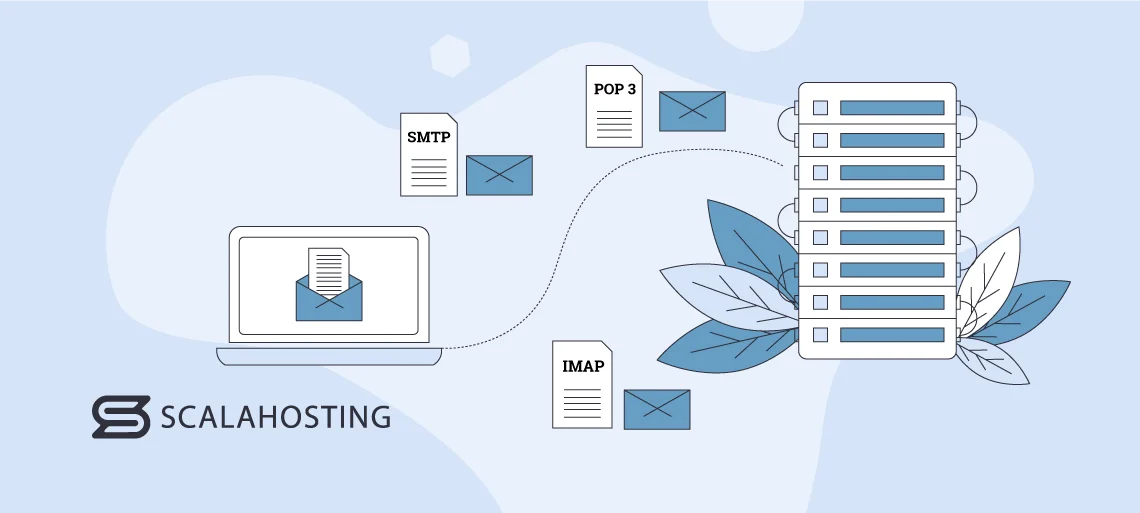
There are three types of mail servers: POP3, IMAP, and SMTP, each with its own unique way of handling mailbox storage.
While POP3 downloads mail data from the server to your device, IMAP stores and synchronizes it on the server itself. As for SMTP, it is responsible for sending emails from one server to another.
The location of files also varies depending on the client configuration. Emails can be stored either on the device or on the server.
Knowing where your emails are can help you locate lost mail and prevent data loss in the event of device damage or malfunctions. It’s important to regularly back up your emails using cloud storage options or external hard drives to avoid losing valuable data.
Exchange Servers and Email Storage
Exchange servers are popular for businesses and organizations to store their emails. These servers offer various features like calendar sharing, contact management, and task scheduling.
Email storage is done through a database that can be accessed securely through various platforms and devices. Exchange servers ensure your data is backed up regularly, reducing the risk of data loss.
Cloud-based exchange servers offer additional benefits such as scalability, remote access, and disaster recovery options. They are an excellent option for secure and reliable storage solutions for business needs.
What to Look for in an Email Hosting Provider
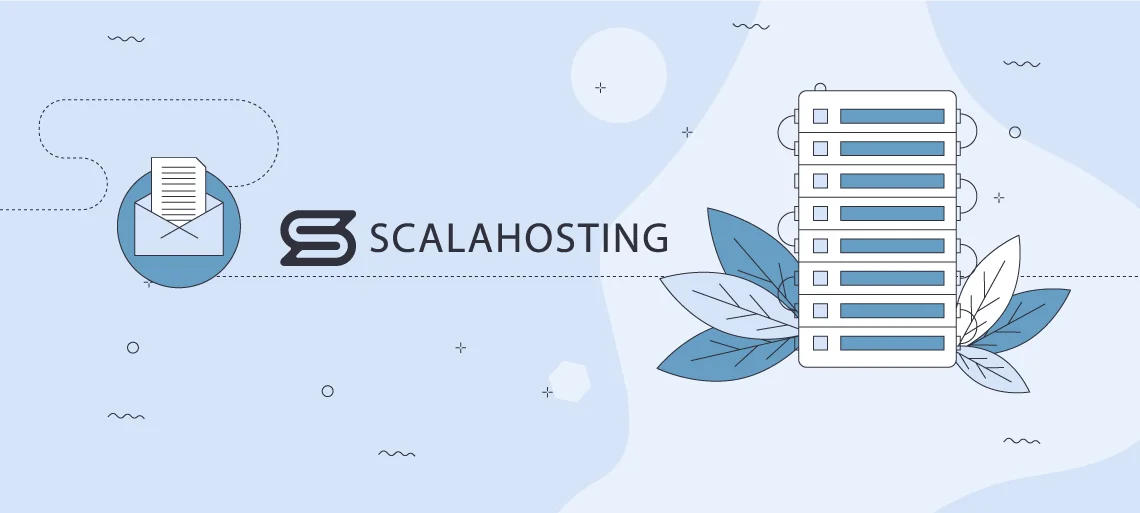
When selecting a hosting provider, it’s critical to consider the following factors:
- Encrypted connections and spam filters to maintain the privacy of your email.
- Storage capacity is essential, as you want enough space for your messages and attachments.
- Easy access via various devices and platforms, including smartphones and tablets.
- Prompt and efficient customer assistance with technical issues or queries.
- Select a provider that fits your budget without compromising the required features.
Some providers offer flexible pricing plans based on the number of users or storage capacity, making it easier to scale up or down as needed.
ScalaHosting Email Hosting
ScalaHosting provides businesses with a secure and reliable platform to store emails. You can feel safe working with us since we store your data on company-maintained servers.
We operate several interlinked email servers equipped with automatic backups, support for multiple devices, and webmail accessibility.
Your account comes with extra protection – SShield. This unique security monitoring tool is guaranteed to stop more than 99.998% of web attacks before they even reach your server. Not only that, but our state-of-the-art SPAM protection effectively protects your email inbox and accurately filters out unwanted messages, ensuring you only receive genuine ones.
With the ability to access your emails from anywhere with an internet connection, ScalaHosting caters to remote workers or those on the go, making it convenient and practical.

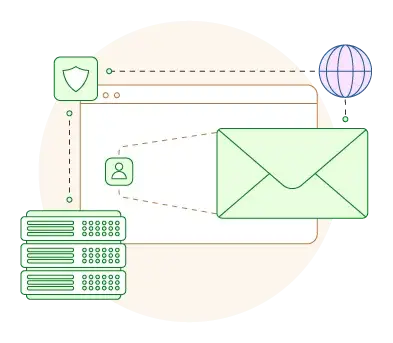
In Summary
Knowing where your mail is stored can help you locate lost messages, troubleshoot issues, and recover deleted ones. Choosing the right mail server and understanding the differences between POP and IMAP is crucial.
ScalaHosting offers reliable and secure hosting services that ensure your emails are always safe and easily accessible. Contact us to learn how we can assist you with your email hosting needs.
FAQs
Q: Are my emails stored on my hard drive?
A: If you use a web-based email service like Gmail, your mail is stored on their servers and can be accessed from any device with an internet connection. However, if you use a desktop client like Microsoft Outlook or Apple Mail, your mail may be stored locally on your hard drive unless you have configured your account to use cloud storage. This also strongly depends on the email protocol you’re using – POP3 will store messages on your device, while IMAP utilizes your provider’s hosting server.
Q: Are emails stored on the cloud?
A: Cloud-based email services such as Gmail, Outlook.com, and Yahoo Mail store users’ emails on remote servers that are accessible through the Internet. This allows users to access their mailboxes from any device with an internet connection and provides backup and storage for their messages.
Q: Where are emails stored on my computer?
A: You can find your email data files by searching for the file extension associated with your email client’s storage format. For example, Microsoft Outlook stores mail data in a .pst (Personal Storage Table) file, while Apple Mail uses a .mbox file format.

